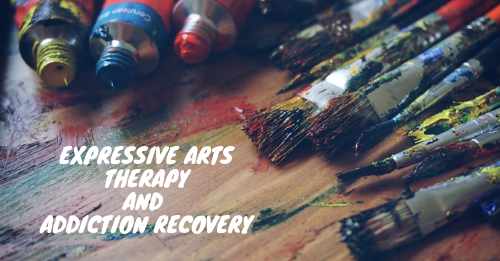Shame, anger, fear — these emotions are just a few of the ones you may face when you’re battling addiction. During your Recovery process, breaking free of thoughts and actions that are self-destructive should be one of the main priorities of your rehabilitation program, but addiction to drugs or alcohol is a very individual experience. That’s why your comprehensive treatment can and should include complementary therapies, which can help you address the root causes that triggered your addiction.
Expressive arts therapy is an adjunct treatment that can be incorporated into your overall Recovery program at 7 Summit Pathways. Using creative expressions like art, music and drama, you may discover a healthy and nontraditional way to vocalize your feelings and emotions.
Addiction impacts many parts of a person’s life, and it can be difficult to remember who you truly are when you’re facing the disease. Using expressive arts therapy can help you battle Drug and Alcohol Addiction to rekindle your old passions and reconnect to a truer version of yourself — who you were before addiction took hold.
What Is Expressive Arts Therapy?
The ability and need to express ourselves is a natural part of being human, but addiction is a mask that can make it difficult to show your feelings. Expressive arts therapy uses the creative process to reclaim your birthright as a creator and artist and facilitate growth and healing.
This unique tool can help uncover problems in a creative fashion. Sometimes deeply rooted issues are accompanied by intense emotions too difficult to verbalize. By using expressive arts to reveal these unspoken personal concerns, those struggling with addiction have the opportunity to constructively release their feelings.
Because art comes from a deep emotional place inside, often, those who utilize expressive arts therapy don’t even realize they had these feelings in the first place. Your creative endeavors will help you undergo a profound process of self-discovery.
Types of Expressive Arts
Expressive arts therapy utilizes the creative arts and transforms them into tools for healing. During your session, the act of creation is more important than a finished product. The focus is on active participation, imagination, self-expression and a connection between your mind and body. Whether you create your own individual piece or work with a group, you can consider using a few different types of expressive arts, including:
- Art: Crafting, drawing, painting and sculpting to express images that come from inside you
- Music: Singing, songwriting and playing musical instruments to release deep-seated feelings
- Dance: Expressing feelings physically through dance movements
- Writing: Journaling, poetry and other forms of creative writing for expression
- Drama: Acting out your experiences through role-playing along with other forms of dramatic expression
Most creative arts therapy sessions begin with a specific prompt, but they can also be free-form. An initial prompt helps participants jump into the creative process with a little help. Once things get going, most feel freer to create pieces on their own.
As the session closes, there’s usually time to reflect on the creation process and explore what a certain piece said about the participant’s emotional state.
Benefits of Expressive Arts Therapy
The main purpose of expressive arts therapy is to give individuals a healthy outlet for extremely strong or painful emotions and provide a way to let those feelings out. A trained arts therapist is able to spot the nonverbal metaphors and symbols in the artwork a participant creates. As a result, expressive arts therapy has other incredible benefits for patients struggling with addiction, including that it:
- Serves as a strategy for starting critical dialogues
- Allows individuals to explore personal, negative thoughts and behaviors that may be self-destructive
- Helps patients discover and face their personal problems
- Lowers stress
- Aids in the development of social skills
- Allows patients to work through relational conflicts
- Increases a patient’s motivation to change
- Assists in recovery from trauma
- Lessens the shame associated with addiction
- Improves overall mental health
- Helps patient develop self-awareness, introspection and essential coping skills
How Expressive Arts Can Help in Recovery
Expressive arts therapy can serve as an excellent addition to many patients’ comprehensive addiction treatment programs. Whether your individualized approach includes private therapy, family counseling or group therapy, the expressive arts can add a holistic element to serve your overall Recovery process.
Art therapy can also help you and your counselor understand what you’re feeling and why. Too often, patients are unable to express or even understand their deep-rooted emotions. By gaining a newfound sense of self-awareness, you can modify your behaviors in the future and overcome addiction to drugs or alcohol.
Learn About Our Expressive Arts Program at 7 Summit Pathways
As part of a holistic approach to addiction treatment, 7 Summit Pathways is proud to offer an expressive arts program. Combined with our evidence-based therapy, we may also recommend creative arts as an effective addition to your individualized treatment program. Our trained team will be there as you face the emotional aspects of addiction and confront and overcome painful feelings, memories or trauma.
If you would like to learn more about our expressive arts program or one of our other treatment modalities, we invite you to contact us today or schedule your appointment at our Tampa-based treatment facility.
